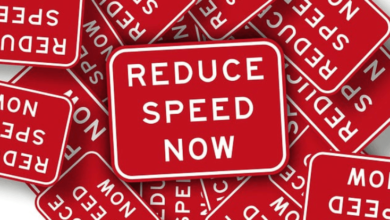
Understanding SSL Certificate Price: What You Need to Know
In today’s digital age, website security is not just an option; it’s a necessity. For businesses, bloggers, and online store owners, ensuring that their website is secure has become paramount. An essential tool for achieving this is an SSL certificate. While SSL certificates enhance security, many website owners are concerned about one critical aspect: SSL certificate price. Let’s break down what influences the cost of an SSL certificate, its importance, and how to choose the right option for your needs.
What Is an SSL Certificate?
SSL (Secure Sockets Layer) certificates encrypt data transmitted between a user’s browser and a website, ensuring that sensitive information like passwords, credit card details, and personal data is safe from hackers. Websites with SSL certificates are easily recognized by the padlock icon in the address bar and the “https://” prefix.
Aside from securing data, SSL certificates also boost search engine rankings and enhance user trust, making them an indispensable part of modern website management.
What Determines SSL Certificate Price?
The cost of an SSL certificate varies depending on several factors. Here are the primary elements that influence SSL certificate pricing:
- Type of SSL Certificate
- Domain Validation (DV): These certificates are basic and only confirm the ownership of the domain. They are typically the most affordable option and are suitable for small websites or personal blogs.
- Organization Validation (OV): These certificates involve additional vetting of the business or organization. They cost more but provide higher trust levels, making them ideal for small businesses.
- Extended Validation (EV): EV SSL certificates offer the highest level of validation, displaying the organization’s name in the browser’s address bar. They are the most expensive but are crucial for e-commerce platforms and large enterprises.
- Number of Domains Covered
- Single-Domain Certificates: Cover only one domain (e.g., www.example.com) and are the least expensive.
- Wildcard Certificates: Secure a domain and all its subdomains (e.g., blog.example.com, shop.example.com). These are moderately priced but provide significant value for businesses with multiple subdomains.
- Multi-Domain Certificates (MDC): Secure multiple unrelated domains (e.g., example.com, example.net, example.org). These tend to be more expensive due to their flexibility.
- Certificate Authority (CA)
The reputation of the issuing Certificate Authority can affect the price. Well-known CAs like DigiCert, GlobalSign, and Comodo may charge more because of their reliability and robust support. - Validity Period
SSL certificates are typically sold for one, two, or three years. Longer validity periods may come with discounts but require upfront payment. - Additional Features
Some SSL certificates come with added features like malware scanning, site seals, or warranties, which can influence the overall price.
How Much Should You Expect to Pay?
SSL certificate prices vary widely based on the factors mentioned above. Here’s a rough breakdown:
- Free SSL Certificates: Services like Let’s Encrypt offer free SSL certificates for basic domain validation. However, they lack extended features and support, making them unsuitable for high-traffic or e-commerce websites.
- Basic Paid SSL Certificates: Prices start from $5 to $50 per year for single-domain DV certificates.
- Wildcard and Multi-Domain Certificates: These can range from $50 to $500 annually, depending on the level of validation and the issuing CA.
- EV Certificates: Prices typically start around $100 and can go up to $1,000 per year, depending on the provider and features.
Why SSL Certificates Are Worth the Investment
Although free SSL certificates exist, paid options offer several advantages:
- Enhanced Security: Paid SSL certificates often include robust encryption levels and additional features like malware scanning and warranties.
- Improved Customer Trust: EV SSL certificates display your business name in the address bar, reassuring customers that your website is legitimate.
- SEO Benefits: Google considers SSL as a ranking factor. Paid certificates ensure uninterrupted security, which can improve your website’s search engine performance.
- 24/7 Support: Unlike free certificates, paid SSL options often come with dedicated customer support to resolve issues quickly.
Tips for Choosing the Right SSL Certificate
- Assess Your Needs: If you’re running a blog or personal website, a basic DV certificate may suffice. For e-commerce or enterprise websites, invest in an EV certificate.
- Compare Prices: Shop around and compare SSL certificate prices from various Certificate Authorities. Look for features and warranties that align with your website’s purpose.
- Consider Bundled Packages: Some web hosting providers offer free or discounted SSL certificates as part of their hosting packages.
- Plan for Scalability: If you plan to add subdomains or additional websites in the future, consider investing in wildcard or multi-domain certificates.
Also Read : Yearly Magazine
Conclusion
When it comes to securing your website, an SSL certificate is a vital tool. While the SSL certificate price might vary depending on the type and provider, investing in the right one ensures your website remains secure, trustworthy, and competitive in search rankings. Whether you opt for a free option or a premium paid certificate, prioritize your website’s security needs to make an informed choice.




